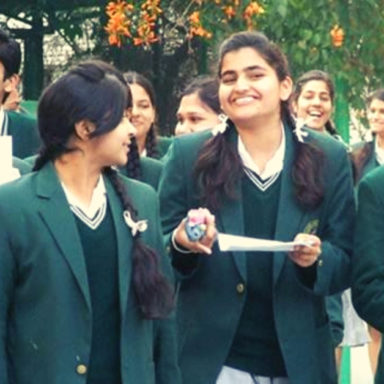With lakhs of students appearing for the upcoming CBSE (Central Board of Secondary Education) exam, children will be currently neck-deep in revisions. The exam for classes 10 and 12 will commence from 4 May 2021 and will conclude by 10 June 2021.
The Better India caught up with Sanjeev Kumar, postgraduate math teacher at Kendriya Vidyalaya, Bhatinda, who has over 18 years of experience teaching at the school’s franchises across India. Sanjeev is now at the forefront of a new role – digital educator. During the lockdown in 2020, Sanjeev took on the role of teaching students online, and so far, he has taught more than 3,000 students from across the globe.
He lists a few pointers that will help students make the most of this time before the exams.
Make a schedule and allot time for each subject
Sanjeev says that at this stage students should ensure that they spend a minimum of one hour on every subject every day. When students feel they are well prepared for a particular subject, they should quickly move on to some other subject. If there are five subjects that each student is preparing for, they must spend a minimum of five hours in revision on each subject.
Assess your strengths
Students, by now, should be aware of where they stand in each subject. Each student must utilise this revision period to get better in the subjects they’re not confident about. Sanjeev says, “Those who score above 80 per cent should strive to reach 90 per cent, those who fall in the 60 per cent bracket should aim for 80 per cent and those who score less than 60 per cent should work towards getting to a 60 per cent score.”
Check and double check the syllabus

“Students must doubly check the CBSE syllabus this year since there have been modifications made to the same,” says Sanjeev. Some students are still unaware of what the reduction in syllabus is and are continuing to study the entire syllabus. Do seek clarity from your teachers regarding the same. When attempting mock tests, do only the questions that are relevant for this year.
Introduction of case study
“Almost 20 per cent of the syllabus this year will consist of a case study. This is to test the comprehension skills of students and they are required to answer a set of questions after reading a passage,” says Sanjeev. This is a completely new addition and students must be prepared to answer these questions. This does not require the students to remember any formula or method. This is to purely to test the knowledge that the students have, therefore students must work on case study-based questions.
Work on your weaknesses
Speaking specifically about mathematics, Sanjeev says, “Imagine you have a quadratic equation question, there are four ways of solving it. Pick the best possible way of solving the equation, concentrate on that alone. Master what you already know well rather than introduce new things.” Remember that in the exam, the method one follows is not important, what is important is to find the right answer within the given time.
General Pointers:
- Attempt as many mock tests as possible – Those that the school sets as well as from online portals.
- Fight the boredom – While it is great to be well prepared, students should not get bored of studying and revising. Always try and attempt a slightly higher level of questions. This will keep you on your toes.
- Take small breaks in between – Remember to step away from the books once every few hours. This will help you refocus and retain more.
- Indulge in a hobby or sport – Besides spending your time studying and revising, students must also find other avenues to engage their mind and body like pursuing sports or taking up a hobby.
(Edited by Yoshita Rao)
If you found our stories insightful, informative, or even just enjoyable, we invite you to consider making a voluntary payment to support the work we do at The Better India. Your contribution helps us continue producing quality content that educates, inspires, and drives positive change.
Choose one of the payment options below for your contribution-
By paying for the stories you value, you directly contribute to sustaining our efforts focused on making a difference in the world. Together, let's ensure that impactful stories continue to be told and shared, enriching lives and communities alike.
Thank you for your support. Here are some frequently asked questions you might find helpful to know why you are contributing?

